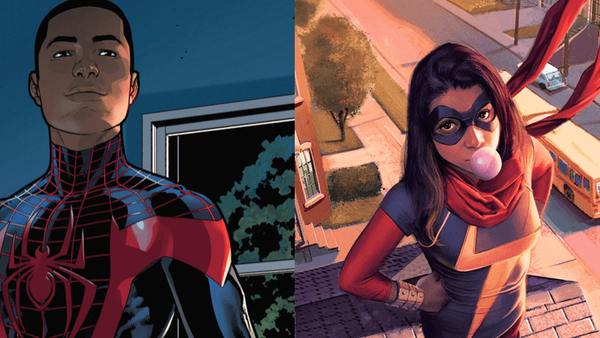4 Unfair Assumptions About Comic Book Readers
3. Fanboys Are All Against Diversity

It’s no secret that serious fans hate change. That’s one of the things that makes us so hard to please: we hate stagnation, but we also hate making things different. Just give me the same Batman story over and over for years, but also shake things up and keep me guessing. That’s a big reason why a lot of fans have complained about decisions made by Marvel and DC.
There was no outrage when Jaime Reyes debuted because he was a fresh character who, despite taking the mantle of an established white guy, didn’t feel like he was being shoved down our throats to meet some quota. There was no outrage when Ryan Choi took over for the Atom a decade ago; nor was there any fury when Cassandra Cain became Batgirl years before that. Green Lantern Kyle Rayner was revealed to be half-Mexican; Green Arrow Connor Hawke, Oliver Queen’s son from the 90s, had a mother who was half-Korean and half-black. At the time, these were just natural developments of the stories; there was no “look how diverse we’re becoming” message being pushed.
Contrast that with the Jane Foster Thor, who within the first few issues of her tenure was confronted by a sexist rant from Absorbing Man that was very clearly meant to echo the internet detractors. She also had Titania, a female villain who regularly fights She-Hulk, surrender to her simply because she respects her so much as a fellow woman. She actually says “This is your one-time girl-power pass.” As if this Thor is some trailblazer for female superheroes. That is such ham-fisted writing that women should be insulted. Even Sam Wilson, whose ascension to the rank of Captain America at least makes sense due to his long running association with Steve Rogers (unlike Riri Williams’ takeover for Iron Man), had in-story racism hurled at him that was deliberately invoking the online bigotry. The message from insecure writers is: “if you don’t like these choices then you’re just as awful as the bad guys in the story.”
It is very possible to agree with the politics that inspired a decision without wanting them to be front and center in your superhero media. Superheroes can often tackle real world issues, but at least have some subtlety in your approach. The X-Men have been stand-ins for racial and sexual minorities for decades and many stories have been written about them that are metaphors for racial genocide, civil rights abuse, and human rights violations. Political statements were made via the plot and not with ridiculous dialogue that hits you over the head. It’s the difference between recognizing the similarities that the Mutant Registration Act has with the communist fear-mongering of the Hollywood Blacklist and lazily having the hashtag #MutantLivesMatter trending on twitter in the pages of an issue. One can be in support of social justice and also object to the lazy shoe-horning of social justice issues into the books that are designed to make them look more progressive than they actually are.